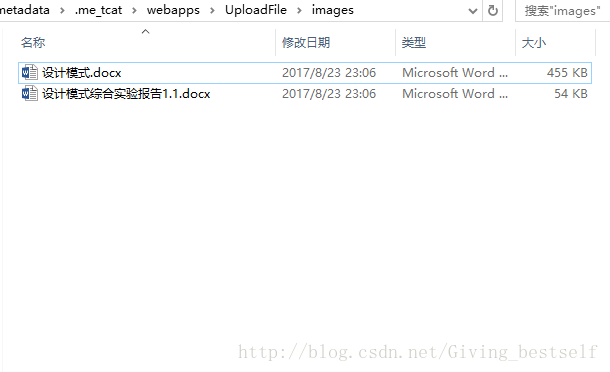Struts2实现多文件上传功能
前台form 表单:设置method=post,enctype=multipart/form-data。
struts2在原有的上传解析器继承上做了进一步封装,更进一步简化了文件上传。
Action需要使用3个属性来封装该文件域的信息:
(1)类型为File的*属性封装了该文件域对应的文件内容;
(2)类型为String的***FileName属性封装了该文件域对应的文件的文件类型;
(3)类型为String的***ContentType属性封装了该文件域对应的文件的类型。
具体实现:
新建web项目

添加struts2相关包
myeclipse可直接下载,右击项目,如下。

前台
<%@ page language="java" import="java.util.*" pageEncoding="utf-8"%>
<%
String path = request.getContextPath();
String basePath = request.getScheme()+"://"+request.getServerName()+":"+request.getServerPort()+path+"/";
%>
<html>
<body>
<form action="upload.action" method="post" enctype="multipart/form-data">
<input type="file" name="upload" multiple="multiple"/>
<input type="submit" value="提交"/>
</form>
</body>
</html>
配置web.xml
<?xml version="1.0" encoding="UTF-8"?> <web-app xmlns:xsi="http://www.w3.org/2001/XMLSchema-instance" xmlns="http://java.sun.com/xml/ns/javaee" xsi:schemaLocation="http://java.sun.com/xml/ns/javaee http://java.sun.com/xml/ns/javaee/web-app_3_0.xsd" version="3.0"> <display-name>UploadFile</display-name> <filter> <filter-name>struts2</filter-name> <filter-class>org.apache.struts2.dispatcher.ng.filter.StrutsPrepareAndExecuteFilter</filter-class> </filter> <filter-mapping> <filter-name>struts2</filter-name> <url-pattern>*.action</url-pattern> </filter-mapping> </web-app>
配置struts.xml
<?xml version="1.0" encoding="UTF-8" ?>
<!DOCTYPE struts PUBLIC "-//Apache Software Foundation//DTD Struts Configuration 2.1//EN" "http://struts.apache.org/dtds/struts-2.1.dtd">
<struts>
<constant name="struts.enable.DynamicMethodInvocation" value="false"/>
<constant name="struts.devMode" value="true"/>
<constant name="struts.multipart.saveDir" value="/tmp"/>
<constant name="struts.custom.i18n.resources" value="app"></constant>
<package name="default" namespace="/" extends="struts-default">
<action name="upload" class="com.yf.action.UploadAction">
<result>/index.jsp</result>
<interceptor-ref name="defaultStack"></interceptor-ref>
</action>
</package>
</struts>
后台代码
public class UploadAction extends ActionSupport{
private List<File> upload;
private List<String> uploadContentType;
private List<String> uploadFileName;
public List<File> getUpload() {
return upload;
}
public void setUpload(List<File> upload) {
this.upload = upload;
}
public List<String> getUploadContentType() {
return uploadContentType;
}
public void setUploadContentType(List<String> uploadContentType) {
this.uploadContentType = uploadContentType;
}
public List<String> getUploadFileName() {
return uploadFileName;
}
public void setUploadFileName(List<String> uploadFileName) {
this.uploadFileName = uploadFileName;
}
@Override
public String execute() throws Exception {
//文件保存路径
String path = ServletActionContext.getServletContext().getRealPath("/images");
File file = new File(path);
//不存在则创建
if(!file.exists()){
file.mkdir();
}
//循环将文件上传到指定路径
for(int i = 0; i< upload.size(); i++){
FileUtils.copyFile(upload.get(i), new File(file,uploadFileName.get(i)));
}
return SUCCESS;
}
结果如下


以上就是本文的全部内容,希望对大家的学习有所帮助,也希望大家多多支持我们。
赞 (0)

